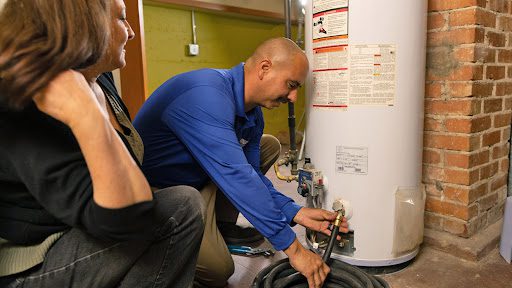Water heaters are an essential part of any household, providing hot water for various daily tasks. However, like any other appliance, they require proper maintenance and occasional overhauls to ensure they function efficiently. In this guide, we’ll delve into the world of water heater overhauls, offering expert advice on maintenance and repairs to help you keep your water heater running smoothly.
Let’s explore the most critical aspects of Water Heater Overhauls: Tips for Efficient Maintenance and Repairs.
The Importance of Water Heater Maintenance
Proper maintenance is the key to extending the lifespan of your water heater and avoiding costly repairs. Neglecting your water heater can lead to inefficiency and potential breakdowns, leaving you with cold showers and other inconveniences. Regular maintenance ensures that your water heater operates at its best.
Regular Inspections
Periodically inspect your water heater for any signs of leaks, rust, or unusual noises. These can be early indicators of problems that, if addressed promptly, can prevent costly repairs down the line.
Flushing the Tank
Sediment buildup in the tank can reduce your water heater’s efficiency. Regularly flushing the tank helps remove sediment and maintain optimal performance.
Testing the Pressure Relief Valve
The pressure relief valve is a crucial safety feature. Make sure it’s working correctly by testing it periodically. If it’s malfunctioning, replace it immediately.
Anode Rod Replacement
Anode rods protect the tank from corrosion. Regularly replacing them can extend your water heater’s lifespan and prevent leaks.
Water Heater Repairs: When to Call a Professional
While regular maintenance can prevent many issues, there are times when you need a professional’s expertise. Recognizing when to call for help is crucial to avoid further damage.
Leaks and Drips
If you notice water pooling around your water heater, it’s a sign of a leak. Address this issue promptly, as leaks can lead to severe damage to your property.
No Hot Water
If your water heater isn’t producing hot water, it could be due to a faulty heating element, thermostat, or other internal components. A professional can diagnose and repair these issues.
Strange Noises
Unusual sounds, such as banging or hissing, can indicate issues within the tank. A professional can identify and fix the problem.
Pilot Light Problems
For gas water heaters, a malfunctioning pilot light can lead to a lack of hot water. A professional can safely relight the pilot or diagnose any underlying issues.
DIY Repairs and Safety
Some water heater issues can be addressed by homeowners who are comfortable with basic DIY tasks. However, always prioritize safety and know your limitations.
Replacing Heating Elements
If you have experience with electrical work, you can replace faulty heating elements. Be sure to turn off the power and follow safety guidelines.
Replacing Thermostats
Faulty thermostats can be replaced if you have some electrical knowledge. Make sure to turn off the power before attempting any repairs.
Insulating Hot Water Pipes
Insulating your hot water pipes can help improve energy efficiency and reduce heat loss, making your water heater more cost-effective.
FAQs
Q: How often should I flush my water heater tank?
A: It’s recommended to flush your water heater tank once a year to remove sediment buildup.
Q: Can I replace the anode rod myself?
A: Yes, you can replace the anode rod yourself if you’re comfortable with basic plumbing tasks.
Q: What should I do if I smell gas near my gas water heater?
A: If you detect a gas leak, immediately turn off the gas supply, open windows for ventilation, and call a professional for repairs.
Q: Are tankless water heaters more efficient than traditional tank heaters?
A: Tankless water heaters are generally more energy-efficient because they heat water on demand, reducing standby heat loss.
Q: How long does a typical water heater last?
A: The average lifespan of a water heater is 8-12 years, but proper maintenance can extend its longevity.
Q: Can I install a water heater myself?
A: Installing a water heater can be a complex task. It’s advisable to have it done by a professional to ensure safety and compliance with local regulations.
Conclusion
Efficient water heater maintenance and repairs are essential for ensuring a continuous supply of hot water in your home. By following the tips and advice outlined in this guide, you can save money on repairs, extend your water heater’s lifespan, and enjoy a reliable source of hot water. Remember, regular inspections and timely repairs can make all the difference in keeping your water heater in excellent condition.



































